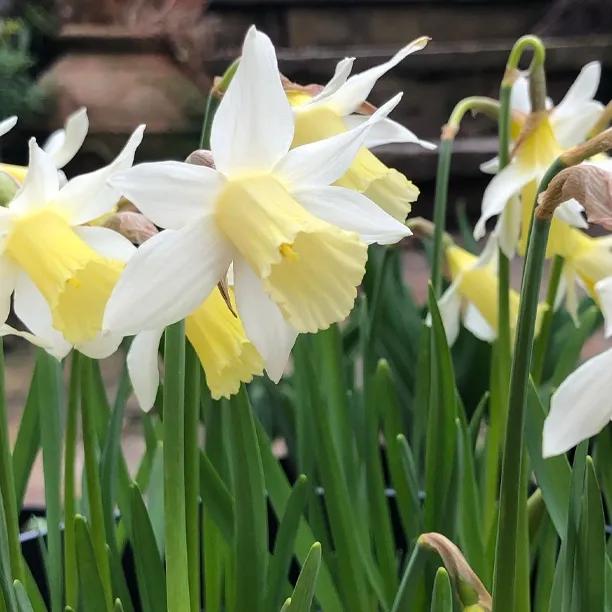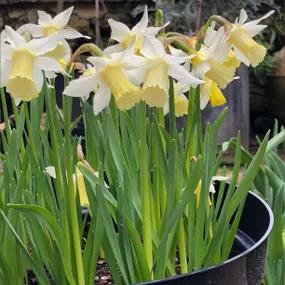Elka Daffodil Bulbs
Honest Delivery Prices- Group 1: Trumpet Daffodil
- Colour: White and Cream
- Flower Height: 25cm
- Scent: Faint
- Flowering: Mar-Apr
- RHS Award of Garden Merit
Recommended extras
Description
Elka Daffodil Bulbs
Dainty Elka is a welcome sight in spring with her elegant ivory flowers and long cream trumpets that gently fade to white. The delicate blooms are long-lasting with a subtle fragrance that is best enjoyed close up in containers. Elka makes a perfect cut flower for sophisticated bouquets with other white or soft blue spring flowers.
Growing Elka
This petite variety prefers well drained, moderately fertile soil in full sun. Plant bulbs in early autumn at about twice their own depth, 7-10cm apart, adding plenty of organic matter first. Deadhead faded flowers and remove foliage only once it has died back. Like all narcissi, Elka benefits from an application of general fertiliser in spring.
In your Garden
Elka is perfect for the front of borders and container displays with other daffodils and spring bulbs like crocuses and early tulips. She looks beautiful underplanted with hazy forget-me-nots and is ideal as part of a white spring border design. Elka will happily naturalise in lawns and under deciduous trees.
Features
- Group: Trumpet Daffodil
- Colour: White flowers with creamy yellow trumpet that matures to white
- Flower Height: 25cm
- Scent: Faint
- Flowering: March to April
- RHS Award of Garden Merit
Planting Instructions
Elka Daffodils thrive in well drained, moderately fertile soil in full sun, although they can cope with light shade. Add plenty of organic matter before planting in early autumn at about twice their own depth, 7-10cm apart. Deadhead faded flowers and remove foliage once it has died back. Apply a general fertiliser in spring.
Did You Know?
She was named by Alec Gray, a Cornish daffodil breeder of the early twentieth century who specialised in breeding miniature narcissi, after two daffodil growers of the time: Elizabeth and Kate.



